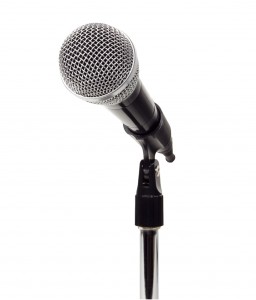A well-placed quote can set the wh ole mood of your piece, adding authority, wit or credibility. However, like all powerful tools, the quotation needs proper handling.
ole mood of your piece, adding authority, wit or credibility. However, like all powerful tools, the quotation needs proper handling.
Quoting Others
When you’re using someone’s words as a testimonial, always make sure that you have their permission. Also, identify your sources in a way that makes your readers feel as if these are the words of a real person. Instead of praise from “D. J., Oklahoma,” use the full name, the business title (if appropriate) and either the organization’s name or the town and state.
If you’re an employee of a company or doing a work-for-hire project for a client, you probably will have to submit your work to an approval process. As a result, you may encounter executives or lawyers who’ll suck the vigor out of your best quotes. Since it is essentially their work (you signed away the rights), cooperate as much as you can and strive for a compromise.
If you’re writing a piece for a publication, it’s up to you how much you share with the people you quote (unless it’s a ghostwriting assignment which will be a work-for-hire or very similar to one in procedure).
If the interviewee’s language is too awkward to use, you can always use an indirect quote, e.g., “He said that sales revenues from widgets were the best in a decade.” You can also email the subject and asking for clarification. The emailed reply is usually usable.
In all cases, you should protect your interests by keeping careful notes, avoiding fragmentary quotes, and resisting the urge to grammatically “fix” the interviewee’s words.
Being Quoted
If you’re quoted in a press release or some other piece commissioned by your organization, it’s standard procedure that you get to approve the quotations before the piece is distributed. However, when you speak to journalists, you lose that control. One remedy is to ask politely if they would read back the quotes at the end of interview or send them to you at a later point. Say that you want to make sure you’ve given them accurate data. If they are uncomfortable with that, don’t press. And absolutely do not ask to see the entire article; any journalist will balk at the idea. If you want journalists to interview you, you can find resources for being quoted such as Help a Reporter Out (HARO), ProfNet and GuestFinder.
Misquotes can arise through misunderstandings or because the reporter took your words out of context. In that situation, keep your cool and contact the publication or broadcast station to request a correction. Most stations allow editorial replies, and publications will either have a corrections column or print your letter in their regular letters column. However, if the misquote is more annoying than harmful, consider letting it go. Making a fuss over a minor mistake will discourage some reporters from working with you in the future.

